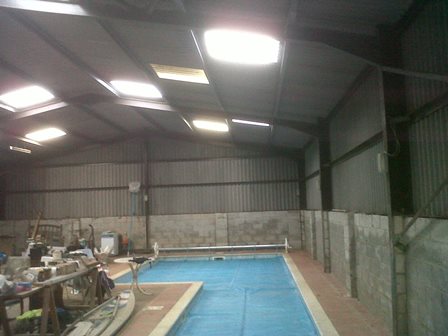©Reuters Venezuela’s economic and political woes are set to curtail Opec member’s oil production, adding to a growing list of supply disruptions that are helping to prop up global crude prices. Analysts believe chronic power shortages in the country could soon affect the oil sector, with output declining 100,000-200,000 barrels per day this year. More On this topic IN Emerging Markets Dangerously low water levels at Venezuela’s giant Guri dam — which provides more than a third of the country’s electricity — may also force the country to shut the site to avoid turbine damage, which is likely to hit oil production and could force officials to redirect some oil exports towards electricity supplies and diesel generators. Last week water levels at the dam were 243 metres, with 240 metres the cut-off point. In a bid to save electricity, President Nicolás Maduro recently reversed a half-hour time change that had been a trademark policy of his predecessor Hugo Chávez’s 14 years in power. “We have to consider that Venezuela is less than 20 days away from a major power production disruption,” Olivier Jakob of Petromatrix, a Swiss-based consultancy, wrote in a recent report. “Crude and product production could be negatively impacted and the country might have to increase imports of petroleum products for generators.” Unplanned production outages are picking up among Opec members with oil prices around $40 a barrel. A workers’ strike in Kuwait and pipeline fire in Nigeria have added to the disruptions that analysts estimate stand at almost 2.8m b/d — the highest level in nearly two years. The supply issues have provided a powerful prop for the oil price after some of the world’s leading oil producers failed to agree to freeze production — a deal that Venezuela helped bring to the negotiating table in an effort to prop up its finances. The country’s oil minister Eulogio del Pino has blamed Saudi Arabia for the collapse of the talks, claiming its delegation has “no authority to decide on anything” as they were under strict instructions from Riyadh not to give any ground to Iran, another Opec member. Crude production in Venezuela, which has the biggest oil reserves in the world, according to the BP Statistical Review, is already decreasing. According to Opec March’s report, Venezuela’s oil production dropped to 2.52m b/d in February 2016 from 2.59m b/d in December 2015. Average output in 2015 was 2.65m b/d, down from 2.68m b/d in 2014. While the chronic power shortages may increase domestic consumption of fuels such as diesel, electricity rationing is likely to hit oil production says Francisco Monaldi, a Venezuelan energy expert with the Houston-based Baker Institute for Public Policy A lack of investment, adequate infrastructure and a shrinking cash flow may drag oil output down by 100,000-200,000 b/d in a year, Mr Monaldi estimates. Analysts at IPD Latin America say Venezuela’s output is likely to drop from 2.78m b/d last year to a forecast 2.62m b/d in 2016. “If oil prices remain low, we have a pessimistic scenario where production will continue to fall,” says David Voght, IPD’s managing director. Last week, Schlumberger, the US oilfield services company, announced it was cutting back on some of its activity in Venezuela citing insufficient payments “received in recent quarters and a lack of progress in establishing new mechanisms that address past and future accounts receivable”. Energy consultancy FGE estimates that Schlumberger’s exit from Venezuela, “could leave at least one-fifth of the country’s output exposed to steep declines this year, resulting in output by December dropping by around 150,000 b/d year on year.” Copyright The Financial Times Limited 2016. You may share using our article tools. Please don’t cut articles from FT.com and redistribute by email or post to the web. Source link





